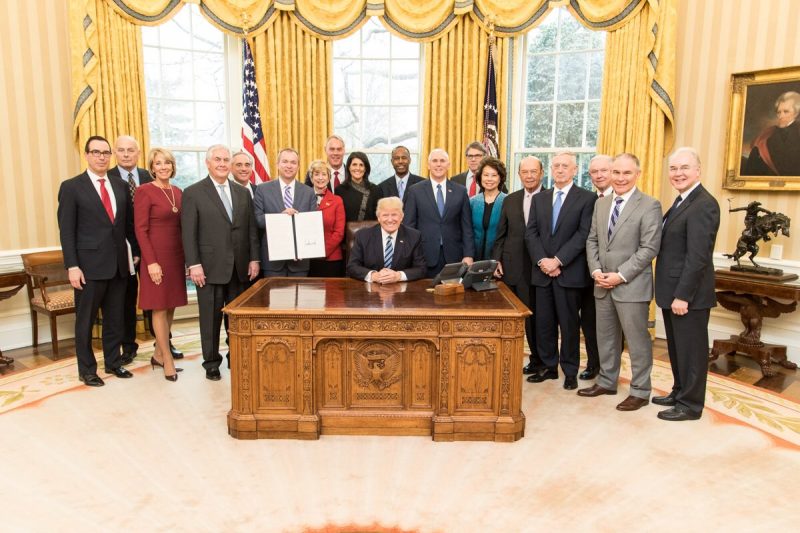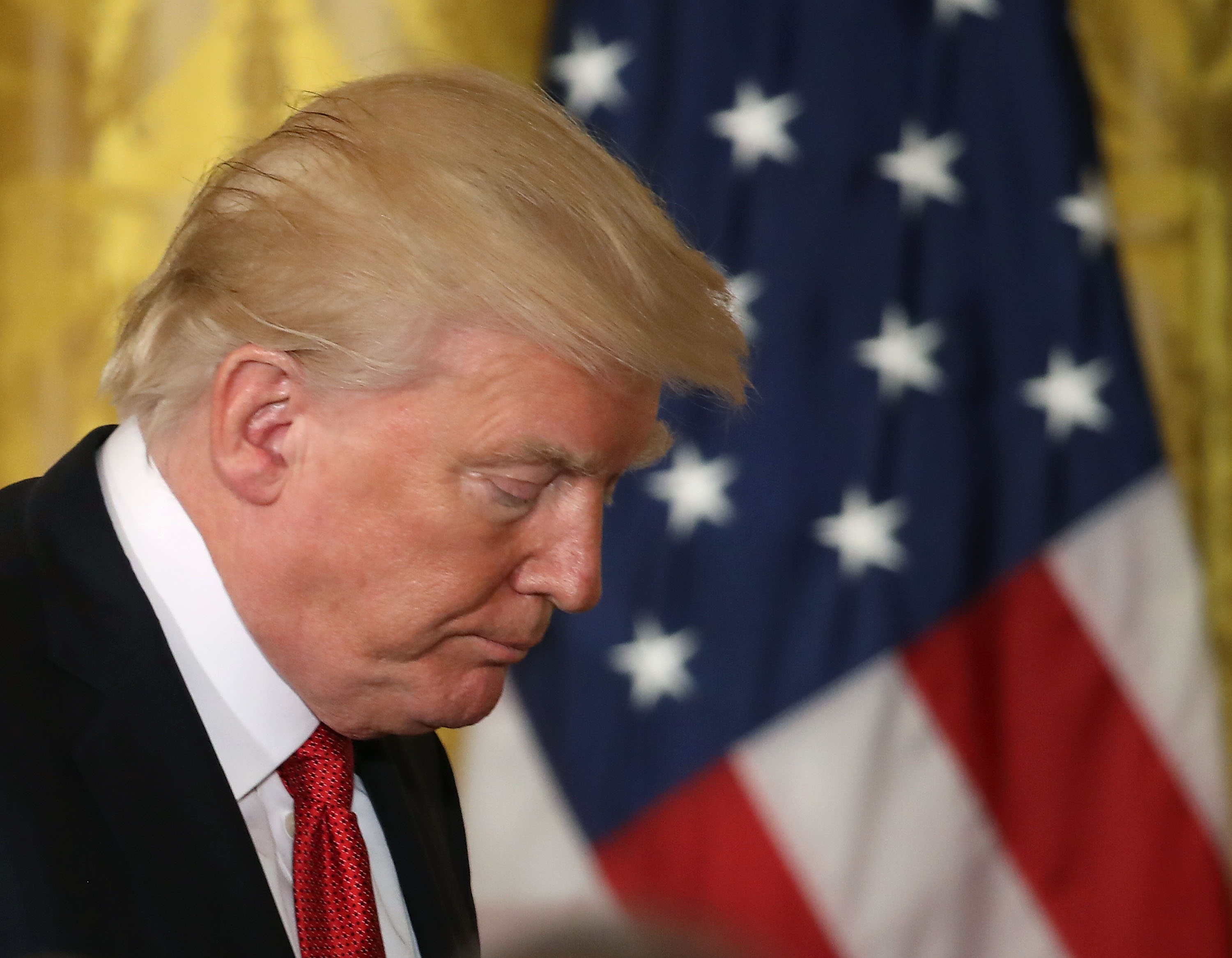There are currently 442 key executive branch positions that President Donald Trump has not nominated anyone for, and that process may stall even further given a brewing controversy over the president and his associates’ potential ties to Russia.
Recent news stories suggesting that the congressional and FBI investigations may now reach some top White House officials may deter potential nominees from joining the administration, Politico reported on Wednesday.
The Trump-Russia story has gained steam over the last few weeks, following Trump’s abrupt decision to fire FBI director James Comey.
A number of potential nominees are having second thoughts as the continuing investigations threaten to derail Trump’s agenda, four people close to prospective nominees told Politico.
An attorney who represents potential executive branch nominees also told Politico that three clients said they were not interested in working for Trump following the appointment of former FBI director Robert Mueller as a special prosecutor in charge of spearheading the FBI's Russia probe.
A White House spokeswoman told Politico that the Russia controversy has had no impact on hiring, adding that the president is tapping individuals "of the highest quality."
Having a significantly under-staffed executive branch is not a catastrophic risk in the short term, experts told Business Insider, because while political appointees await Senate confirmation, the administration still has the power to appoint acting individuals to executive agency roles.
In other words, while the positions are unfilled, they are not vacant and are almost always occupied by career people who are chosen by the president from a narrowly-defined pool of individuals, while the president's nominee is vetted by the Senate.

But experts warn the greatest risk in unfilled roles lies in handling crisis situations or enacting long-term policies.
"In order for anybody to represent the administration before Congress or to make any policy decisions, the administration needs to have appointees at sub-cabinet levels," Dr. James Pfiffner, an expert on White House organization and a professor at George Mason University's Schar School of Policy and Government, told Business Insider.
"And if Trump wants to make policy changes, which he clearly seems to want to do, he can't really do that unless he has his people working on programs he wants to change," Pfiffner said.
A person's status as an acting individual also hinders critical networking with other political appointees in executive agencies, Max Stier, head of the Partnership for Public Service, told Business Insider. According to Stier, whose organization advised Trump during the transition period on presidential hiring, permanent employees are not as likely to invest time in building relationships with those they view as being temporary.
These loose relationships between political appointees and acting appointees could pose significant risks in potential crisis situations.
"With crisis management, in almost all instances, crises that occur in the federal government involve multiple agencies, often times multiple secretaries at multiple levels of the government," Stier said. And in a situation where a significant number of positions are unfilled by the president's appointees, "you just don't have a team operating as well as a team should."
Multiple investigations into the Trump campaign's Russia ties are likely hindering the process further.
"There's no doubt in my mind that people are being very cautious, to put it mildly," the attorney representing potential appointees told Politico. If people continue to drop out from consideration, "you're going to have a situation where they're going to have trouble getting A-list of even B-list people to sign up," the lawyer added.

